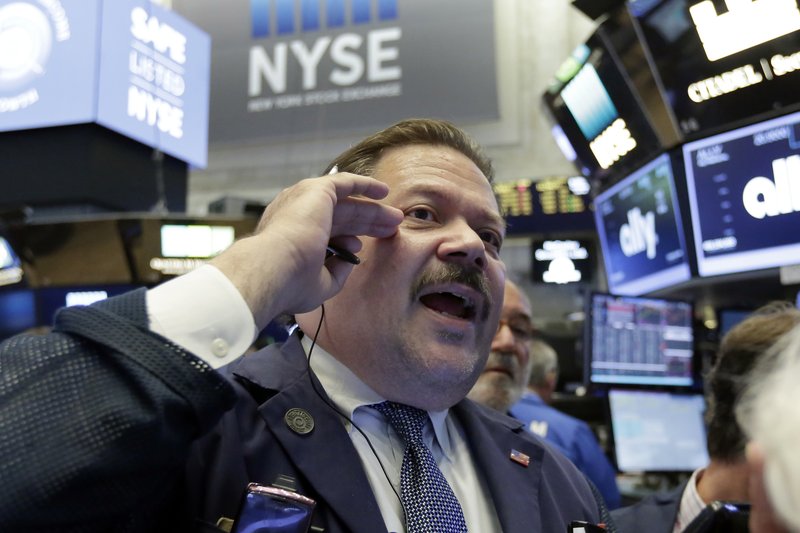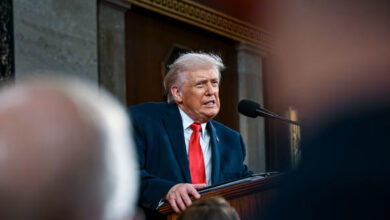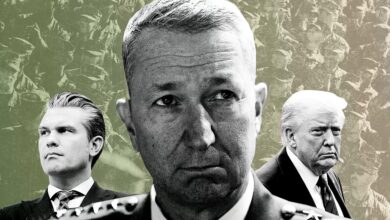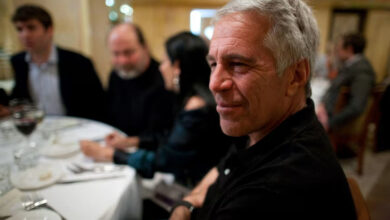
Special counsel Robert Mueller’s investigation into Russian meddling in the 2016 election jumped forward this week with a 12-count indictment against two former campaign advisers to President Donald Trump and a guilty plea from another adviser. Several congressional committees are also investigating the meddling, and whether there is any link to Trump’s campaign.
Here’s what we know now:
MUELLER’S MOVES
Mueller’s investigation moved into a new, more serious phase Monday as former Trump campaign chairman Paul Manafort and Manafort’s business associate Rick Gates, who also had a role in the campaign, were indicted on 12 counts. Those included conspiracy against the United States, conspiracy to launder money, acting as an unregistered foreign agent, making false statements and several charges related to failing to report foreign bank and financial accounts. The indictment alleges they funneled payments through foreign companies and bank accounts as part of their private political work in Ukraine. They have both pleaded not guilty.
Manafort’s indictment doesn’t reference the Trump campaign or make any allegations about coordination between Russia and campaign aides. But it does allege a criminal conspiracy was continuing through February of this year, after Trump had taken office.
Attorneys for Manafort defended him in a court filing Thursday as a “successful, international political consultant” who, by nature of his work on behalf of foreign political parties, was necessarily involved in international financial transactions.
Separately, former Trump campaign adviser George Papadopoulos is pleading guilty to lying to federal agents about his dealings with several Russians who were offering “dirt” on Trump’s Democratic rival, Hillary Clinton.
CONGRESS CONTINUES, TOO
Several congressional committees are also investigating the meddling and if Trump’s campaign was connected. While Mueller’s investigation can result in criminal charges, lawmakers can only hold hearings, issue reports and propose legislation to try to prevent further interference from foreign actors.
Two of the committees investigating the interference and the Trump campaign’s role have been plagued by partisan disagreement. California Sen. Dianne Feinstein, the top Democrat on the Senate Judiciary Committee, has started sending her own letters to witnesses after disagreements with the committee’s Republican chairman, Sen. Charles Grassley. And in the House intelligence committee, Democrats have remained skeptical of the chairman, Devin Nunes, R-Calif., who stepped back from the investigation due to his close ties with the White House but has continued to sign subpoenas.
The Senate intelligence committee’s probe has been more bipartisan. And both the House and Senate intelligence committees have continued to interview witnesses weekly.
SOCIAL MEDIA COMPANIES GRILLED
In three exhaustive congressional hearings this week, executives from Facebook, Twitter and Google acknowledged their platforms were used by Russia to try to create division over such disparate issues as immigration, gun control and politics. House investigators released a trove of Facebook and Twitter ads that showed the extent of the cyber intrusion.
The few dozen ads are a sampling from more than 3,000 Russia-linked ads Facebook had turned over to the committee. Seen by millions of people, they encouraged street demonstrations against Trump and Clinton and fostered support and opposition to Bernie Sanders, Muslims, gays, blacks and the icons of the civil rights movement.
Lawmakers encouraged the companies to do more to prevent intervention in the future. Several senators have proposed legislation that would bring political ad rules from TV, radio and print to the internet, but the bill’s future is uncertain.
OTHER TARGETS
The indictment has also cast shadows on several powerful Washington lobbying and legal firms, with Democratic as well as Republican ties. The Podesta Group, founded by Washington powerbroker Tony Podesta, was among the three firms cited by pseudonym or other references in the indictment, though none is charged with crimes. Prosecutors are implicating all three in covert work for pro-Russian Ukrainian interests, the heart of the criminal case.
Podesta stepped down from his namesake group following the indictment. His brother, John Podesta, ran the Clinton campaign.
REPUBLICAN RESPONSE
In Congress, Republican response to the ongoing investigation has ranged from tacit support for former FBI Director Mueller to attempts to shift the conversation. Nunes has opened a separate intelligence committee investigation into an Obama-era uranium deal, while two other House committees announced last week that they’d pursue new investigations into Clinton.
Trump himself said on Twitter that the alleged crimes were “years ago,” and insisted there was “NO COLLUSION” between his campaign and Russia.
As he has before, he pointed instead to his Democratic rival in the election. He tweeted: “Why aren’t Crooked Hillary & the Dems the focus?????”




